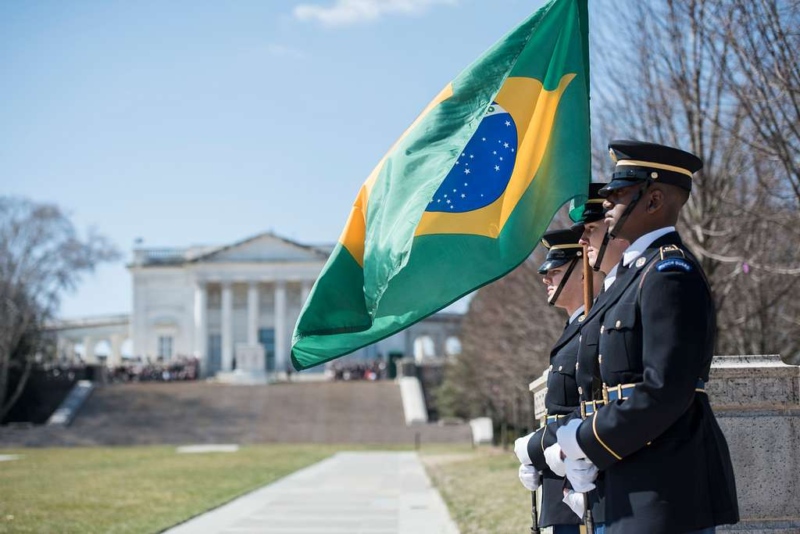The Politics Of Disaster Relief
After a 7.0 magnitude earthquake struck Haiti, the aftershock reached China in ways that few anticipated.The earthquake forced Chinese leaders to navigate the tricky politics of disaster relief.
On August 17, 2023, director of the Carnegie Endowment’s American Statecraft Program, Chris Chivvis, spoke with Margaret Myers, director of the Asia & Latin America Program at the Inter-American Dialogue, and Matias Spektor, Dialogue member and professor and associate dean at the Fundação Getulio Vargas’s School of International Relations, on Washington’s strategic alternatives in its relations with Brazil.
"Brazil matters in general for a lot of reasons, many of which you just mentioned. Just at the most obvious level, it's the largest country in South America. It accounts for half the continent's population and territory. It represents about 40% of the GDP of all of Latin America, and additionally plays a very prominent role in the geopolitical realm as you've alluded to. It's been central and rethinking the current global order from within the UN certainly, but mostly through the BRICS configuration where it has pushed, alongside China mostly, for a much more prominent role for the global south."
"For the Biden administration, Brazil is also a critical example of a functioning democracy in the region, even though it, like the US, has had some difficulties of late. And with this in mind, we've seen considerable US support for democratic institutions and outcomes in Brazil, electoral outcomes. So to answer your question, for officials in Washington, my sense is that Brazil is seen through multiple lenses, right? On the one hand as a critical actor and potential partner, especially in the fight against climate change and upholding democratic values, but then also as a potentially important obstacle, to US efforts to defend the international order, for example, especially as concerns Russia and Ukraine, but also more broadly as Brazil and other countries challenge US dominance, including that of the US dollar and we've heard a lot about that of late. Unfortunately, it's my sense that this ambivalence has had a cooling effect on US optimism about the current administration, which was high at the beginning of Lula's presidency, and also a possible cooling effect on US engagement with the country in recent months, although we have seen obviously some overtures."
"Brazil is already a top destination for the US private sector and increasingly so amid challenges in other parts of the region. So the economic relationship has its own momentum of sorts. Still, I think there's a sense that boosting economic ties in ways that address both country's interests is important to the relationship and will continue to ensure a degree of collaboration potentially on these various issues that Matias has mentioned."
"We've seen attempts by two administrations now, especially under the Trump administration, to try to dissuade Brazil from engaging with China in various areas, but especially those of security concern to the US and tech especially, with a lot of talk about 5G and Huawei and the potential challenges and security threats posed by those technologies and Huawei equipment. It resonated to a degree with the Bolsonaro administration and there were some efforts to perhaps consider purchasing other equipment for use, at least by the government or by certain parts of the Brazilian militaries, and Matias would know more about the specifics of that, but Lula made it loud and very clear during his visit to China, that collaboration not just with China but with Huawei and other tech giants was very much on the table and would be moving ahead with visits to Huawei factories, to Huawei showcase facilities."
After a 7.0 magnitude earthquake struck Haiti, the aftershock reached China in ways that few anticipated.The earthquake forced Chinese leaders to navigate the tricky politics of disaster relief.
What should we expect from a newly powerful Brazil? Does the country have the capacity and leadership to be a central actor in addressing critical global and regional problems?
Inter-American relations have taken a disappointing course for the Obama Administration. The US has suffered several political setbacks in the region and little progress has been made on most of the “legacy” issues that Obama inherited.
 Defense Visual Information Distribution Service | CC 1.0
Defense Visual Information Distribution Service | CC 1.0